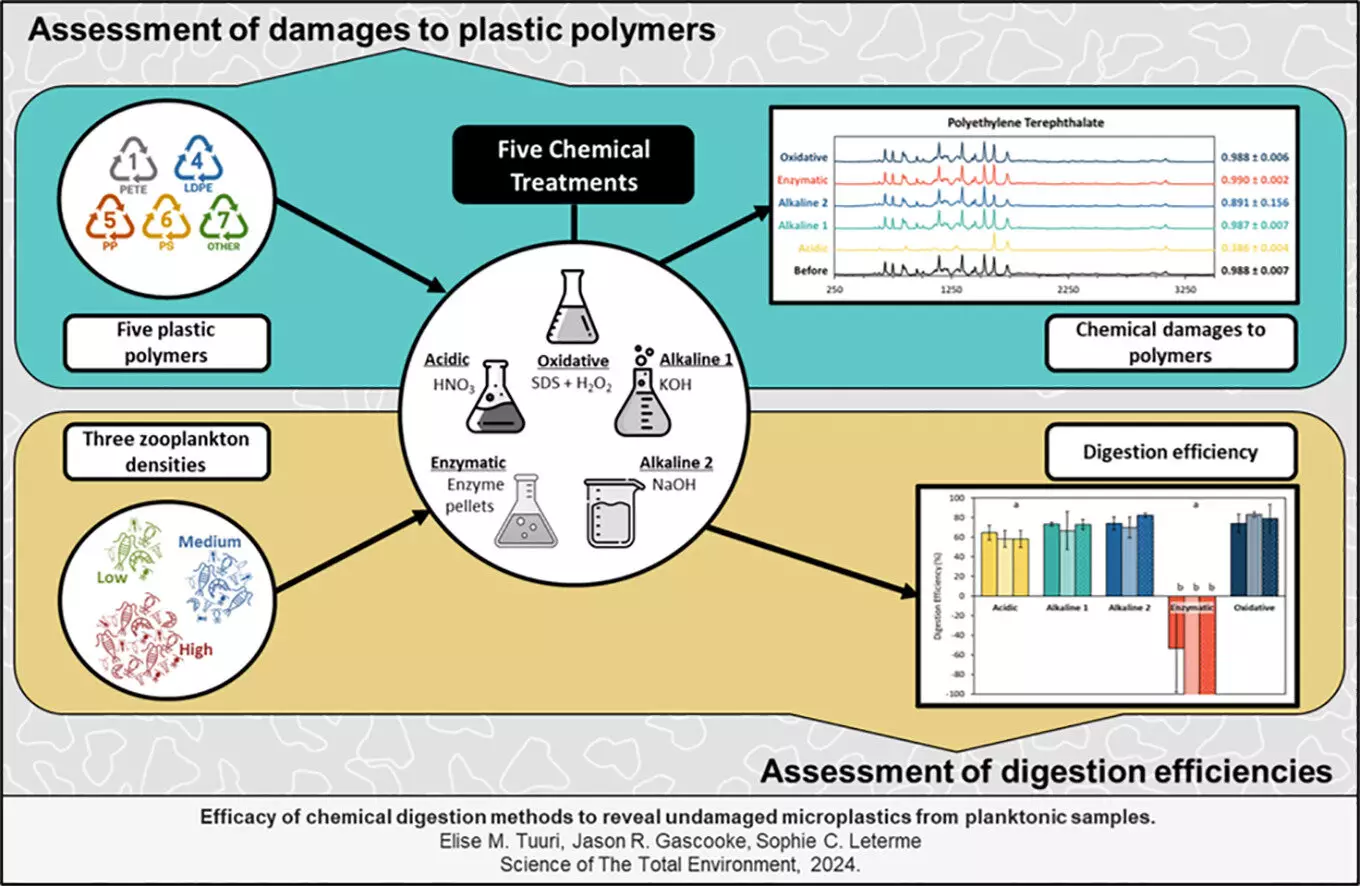Plastic pollution presents one of the most pressing environmental challenges of our time, particularly in marine systems. As production skyrockets—from a mere 2 million metric tons in 1950 to an alarming 380 million tons in 2015—plastic has become the primary form of anthropogenic litter found in oceans and other water bodies. Researchers from Flinders University have recently embarked on a critical study to illuminate the pervasive issue of microplastics, defined as plastic particles smaller than 5mm. As these microplastics infiltrate the marine food web, their potential effects on both ecosystems and human health cannot be overstated.
The alarming fact that microplastics have been discovered in the gastrointestinal tracts of various fish species raises serious questions about the safety of the seafood we consume. Moreover, they have been found in drinking water and even within other food products, leading to concerns regarding toxicological impacts. Chemical additives commonly found in plastics can also pose risks, further complicating the broader narrative of plastic pollution.
Innovative Approaches to Mitigate Microplastic Damage
Flinders University researchers, including Ph.D. candidate Elise Tuuri, have made significant strides in comprehensively understanding microplastic interactions with zooplankton. The study involved analyzing the damage inflicted by five differing chemical digestive aids on common plastics like polyethylene and polystyrene, using cultured zooplankton. By maintaining controlled conditions, the team sought to unveil the nuances of how microplastics associate with these foundational marine organisms.
Their findings suggest that the application of various chemical treatments—ranging from acidic to oxidative—produced varying degrees of degradation. This crucial information can pave the way for better assessment methods for microplastic pollution in marine environments. By examining these interactions, researchers hope to enrich our understanding of the overall ecological impacts, which can extend beyond individual species to affect entire ecosystems.
Health Implications and Future Directions
The implications of microplastic contamination extend into human health. With plastics ubiquitous in our food systems, the potential pathways for toxins from microplastics to enter the human body pose significant concerns. This calls for an urgent need to develop evidence-based strategies to mitigate these risks and reduce overall plastic pollution.
Professor Sophie Leterme, co-author of the study, emphasizes that documenting microplastic abundance through refined testing methods will aid in developing a comprehensive database. This information will not only enhance our understanding of environmental impacts but also inform public policy and individual practices aimed at reducing plastic waste.
Addressing microplastic pollution demands innovative research approaches and public awareness. The work undertaken by Flinders University serves as a beacon of hope, demonstrating that through rigorous scientific inquiry, we can begin to tackle one of the most formidable environmental challenges of our age. As the global community grapples with the consequences of plastic pollution, actionable strategies informed by sound research will be crucial in preserving marine ecosystems for future generations.

